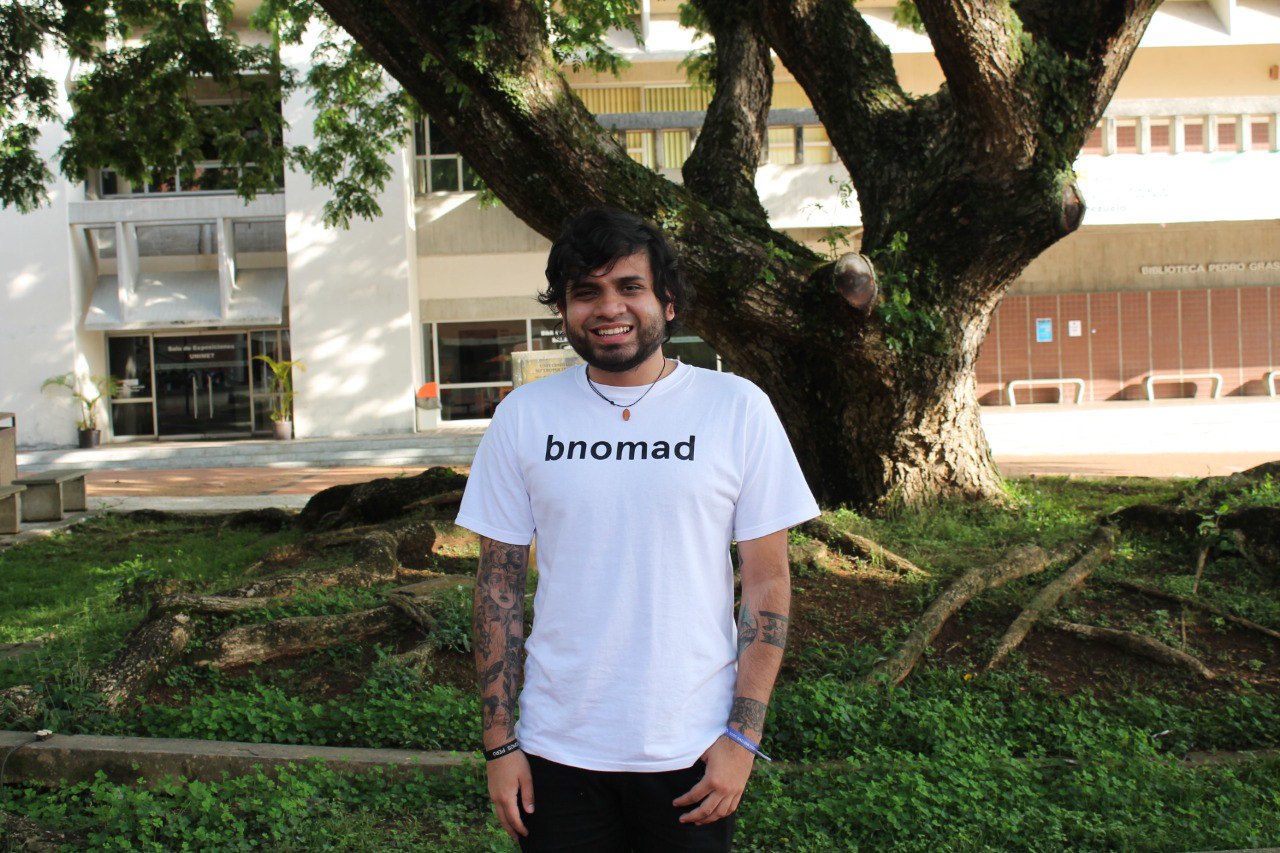How much is a hair transplant in Turkey? A detailed guide
How much is a hair transplant in Turkey? Discover cost ranges, price factors, and why Turkey is a leading destination for hair transplants.
Depending on the clinic and method, a hair transplant in Turkey typically costs between ~$2,000 and $4,000 USD. Each year, thousands of people travel to Turkey for a hair transplant.
According to medical tourism reports, around half of all international patients coming to Turkey are there for hair restoration treatments like follicular unit extraction or direct hair implantation.
Over the last decade, Turkey has become known as a world center for hair transplants and plastic surgery, attracting visitors from the US, UK, and many other countries. People come not only for the significantly lower costs compared to their home countries but also because of the large number of clinics, skilled surgeons, and modern techniques available.
This article explains how much a hair transplant costs in Turkey, what factors affect the price, and how the costs compare to countries like the US, UK, and Canada.
You’ll also find practical tips for planning your trip, like how to stay connected using an eSIM for Turkey, and all the info you need to find the best hair transplant clinic for your needs.
Factors that affect the hair transplant costs
The cost of a hair transplant in Turkey can vary depending on several important factors. While many clinics offer all-inclusive packages, the final hair transplant price depends on your needs and chosen clinic.
Number of grafts
One of the biggest factors of the hair transplant costs is how many hair grafts you need. The larger the donor area and the more coverage required, the more grafts you’ll need — and the higher the overall cost. For example, someone needing 3,000 grafts for their hair transplantation will usually pay more than someone needing just 1,500.
Technique used
Different hair transplant techniques come with different price tags. The most common options include:
- FUE (Follicular Unit Extraction): A popular choice known for minimal scarring and shorter recovery time
- DHI (Direct Hair Implantation): Typically more expensive due to the specialized tools and time required
- Sapphire FUE: A variation of FUE using a sapphire blade for greater precision
Each hair transplant procedure has its pros and cons, and the method chosen will influence the final cost.
The clinic’s reputation and location
A hair transplant clinic in Istanbul may charge differently than one in a smaller city. Clinics with a strong online presence, international accreditation, or partnerships with global health organizations may have higher costs, but often reflect high quality procedures and better post-operative care.
Surgeon’s experience
The skill and background of the hair transplant surgeon also matter. Experienced surgeons or those trained internationally may charge more, but their work often leads to more natural-looking results and fewer complications. Some clinics include a free consultation to help you understand the surgeon’s approach and estimated grafts required.
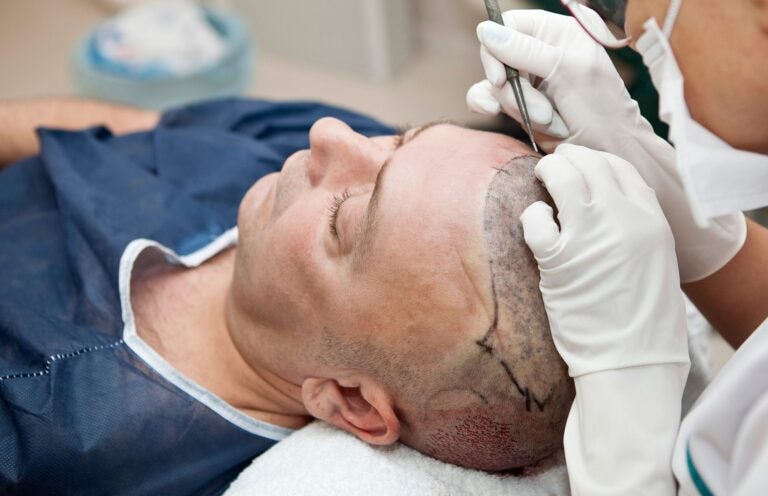
Price breakdown: Turkey hair transplant cost vs other countries
One of the main reasons people consider getting a hair transplant in Turkey is the price difference. Below is a simple comparison of average prices for a standard hair transplant procedure using FUE or DHI methods across several countries.
| Country | Average cost (USD) | Notes |
|---|---|---|
| Turkey | $2,000–$3,500 | Often includes hotel, transfers, translator, and post-operative care |
| USA | $7,000–$15,000 | Prices vary by state and surgeon; usually excludes aftercare |
| UK | $6,000–$10,000 | Higher prices in London or at well-known clinics |
| Canada | $8,000–$12,000 | Similar to US in price structure |
| Australia | $9,500–$10,500 | Varies depending on region and technique used |
A comparison of the hair transplant cost in Turkey vs the USA makes the savings even clearer: American procedures can run between $7,000–$15,000, while Turkey delivers similar or better outcomes at a third of the price. So, how much does hair transplant cost in Turkey? That depends on the clinic and technique, but the value is hard to beat — especially when compared globally.
While it’s important to compare prices, don’t make your decision based on cost alone. The clinic’s reputation, the hair transplant surgeon’s experience, and the technique used all play a major role in the outcome.
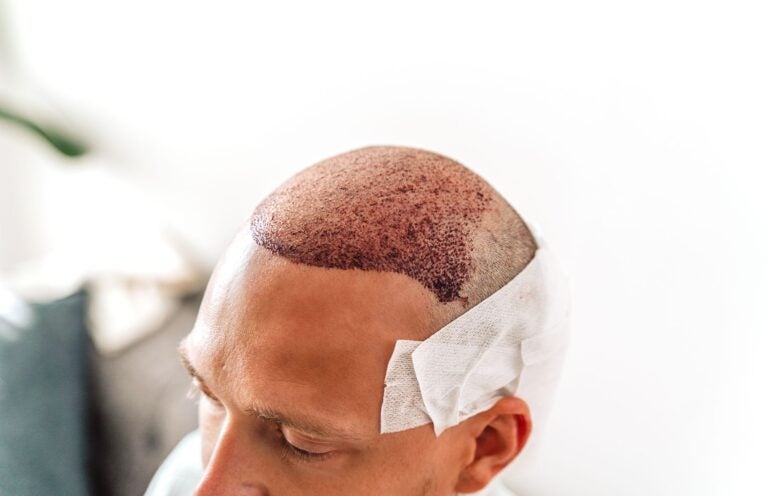
Why are hair transplants cheaper in Turkey?
The hair transplant cost in Turkey often surprises people, especially when compared to prices in the US or UK. However, the difference mostly comes down to economic factors and how the industry is structured within Turkey’s booming medical tourism sector. The average cost of a hair transplant in Turkey is between $2,000 and $4,000 — significantly lower than in most Anglo countries.
Lower operating costs
Wages, rent, and overall clinic expenses are significantly lower in Turkey compared to Anglo countries. This allows hair transplant clinics to offer high quality procedures at competitive prices without cutting corners.
Clinics pass these cost savings on to patients, resulting in an affordable hair transplant price in Turkey, often bundled with accommodation and post-op care.
High number of procedures performed annually
Turkey performs hundreds of thousands of hair transplant procedures every year. This high volume allows clinics to streamline operations, reduce per-patient costs, and maintain experienced surgical teams who perform transplants daily.
The result is not only lower prices, but also a higher level of technical skill due to constant practice. This keeps the Turkey hair transplant cost among the most affordable in the world.
| Country | Hair restoration procedures (latest data) |
|---|---|
| Country | Hair restoration procedures (latest data) |
| Turkey | ~1,500,000 in 2024 |
| USA | ~149,000 in 2021 |
| Europe | ~358,000 in 2021 |
The high demand for Turkish hair transplants means clinics are constantly refining techniques of their successful hair transplant procedures while keeping costs low and outcomes reliable.
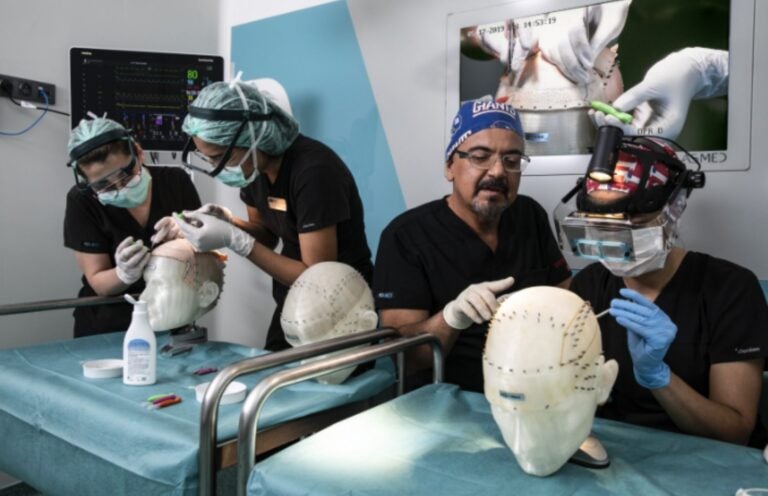
Government support for medical tourism
The Turkish government strongly promotes medical tourism, making the country one of the leading global destinations for cosmetic surgery and hair transplantation.
This includes financial incentives for clinics, easier visa processes for international patients, and quality oversight to protect the country’s reputation. Many clinics also provide a free consultations for hair loss and hair transplant surgery and help with logistics, such as hotel bookings and airport transfers.
Strong competition among clinics
With so many clinics in major cities like Istanbul, Antalya, and Izmir, competition keeps prices low. Clinics attract patients with all-inclusive packages that often cover the entire trip — from hotel accommodation to post-operative care.
This strong market means hair transplant Turkey cost stays low while standards continue to rise.
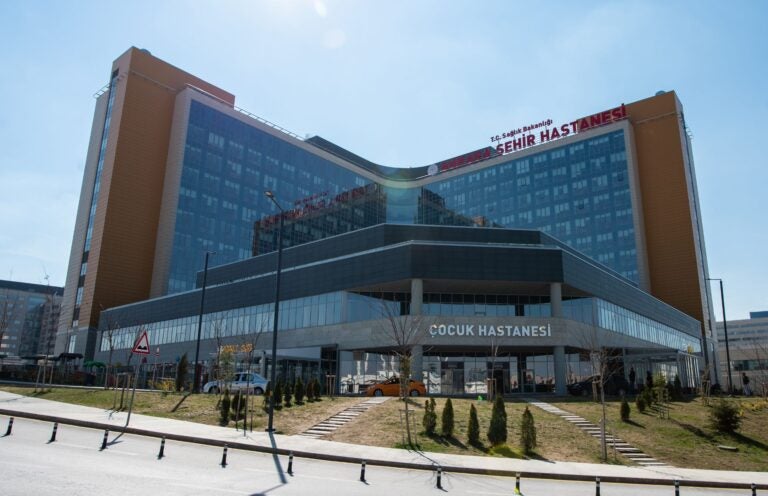
What to expect during your trip
If you decide to have a hair transplant in Turkey, you’ll likely need to spend a few days in the country. Most people stay 4 to 7 days, depending on the clinic and the type of hair transplant procedure they’re having.
What’s usually included? Most clinics offer all-inclusive packages that cover the following:
- Airport transfers
- Hotel accommodation
- The hair transplantation procedure cost
- Translator support
- Basic post-operative care
- Follow-up checkups before you leave
These packages are designed to make things easier for international patients, and they often mean you won’t have to arrange much on your own. Still, there are some other things to consider while you’re in Turkey:
- Prepare to pay in cash: In many cases, the clinic will ask you to pay in cash, either in euros or US dollars. Some accept credit cards, but it’s a good idea to double-check before your trip.
- Get travel insurance for Turkey: Travel insurance is required for traveling to Turkey, but it is not always checked. However, it is best to have it, just in case. Keep in mind that sometimes, travel insurance can be annulled if you undergo selective procedures on your travels. Check that with the insurance provider.
- Bring everything you need: While some clinics provide essentials like shampoo and a neck pillow after surgery, be sure your packing list for Turkey includes comfortable clothes and avoid anything that pulls over your head.
- Don’t worry about being noticed: You won’t need to hide away in your hotel. Nobody will be fazed that you’ve just had surgery — Istanbul is one of the best cities to visit in Turkey, and its streets are full of people sporting bandages from a recent hair transplant. You might even find yourself chatting with someone who had their procedure the same day as you. Check the best time to visit Turkey and make the most of the “tourism” part of your medical tourism journey.
- Stay connected: Having access to the internet makes the entire process easier — from navigating the city to contacting your clinic. An eSIM for Turkey is a simple way to use your phone in Turkey without hunting for WiFi, dealing with complicated procedures for getting a Turkey SIM card, or paying high roaming fees in Turkey.





 Language
Language 


















 No results found
No results found










